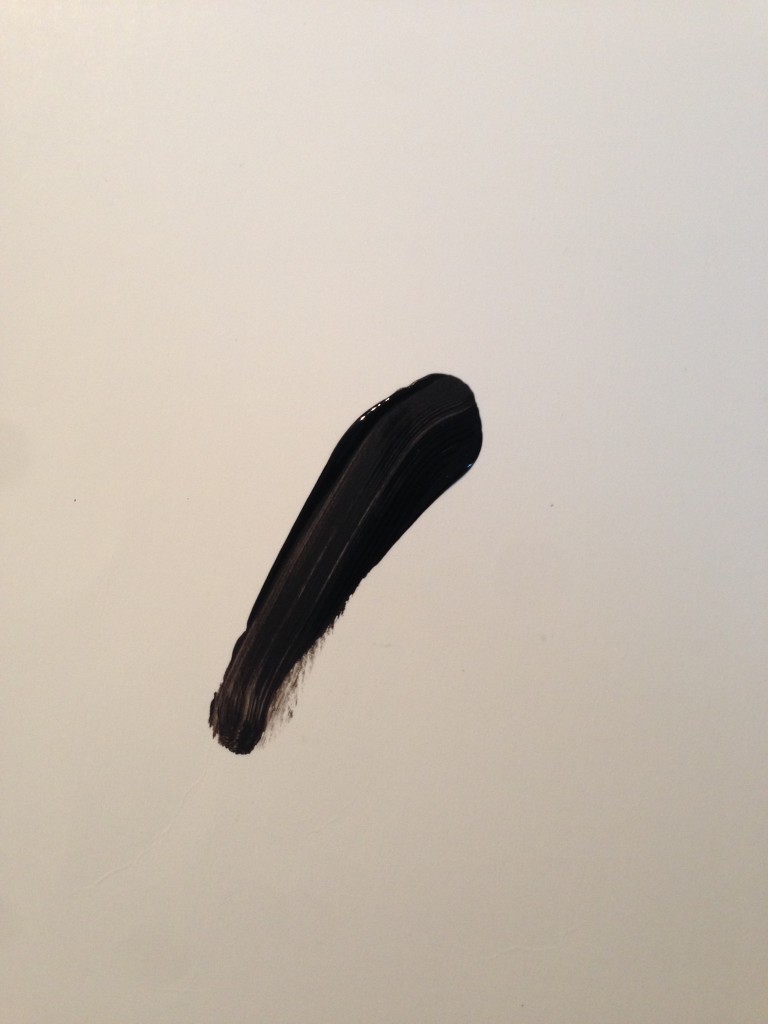There is one principle of good writing that’s 1) rarely said, yet underlying all common advice and 2) shockingly applicable to everything else.
Look at this horse painting. Really look at it:
It’s a traditional genre, with thousands of results on Google. The paintings are technically simple, but masterfully so. Every horse is a few brushstrokes (with some fine details added later). But each of those strokes is exactly where and what it needs to be.
I could take up a brush, plop it on paper and have a random blot to show for it. You know what, I’m gonna do it right now.
And because I love you guys, and I’m blown away by how many people are actually reading the blog, I’m gonna finish the damn horse. For you.
Notify the Louvre.
Obviously, we can identify a couple of minor differences between the paintings. The first is that mine looks nothing like a horse.
The other painting is composed of simple, masterful strokes that do exactly what they should, and convey the right idea with minimal (apparent) effort.
This. This is how you write. This is how you program. How you do everything.
Writers are like snipers, in that results per fingerstroke are the only meaningful measure.
It’s also applicable to living. We flail around randomly too much, spending half our time correcting inevitable outcomes of past flailings, instead of living our lives in masterful, effortless strokes. Maybe that’s why people are tired, wasting effort unskillfully, compensating for bad form with undirected, broad, indiscriminate expenditure of energy. That might be a result of a culture of considering effort an end in itself. We’re too often the guy who spends three months frantically painting and goes through a wagon of art supplies only to turn up a fucking hideous horsemonster.
Or an anteater.
How much better to paint a perfect picture in two strokes, in minimal movements that are exactly what they should be. This is the one skill to rule them all.
In Europe, Picasso did this:
I am sure there’s a monosyllabic word for it in Japanese. The language is good at concise terms for complex concepts (that really aren’t).
If you want to say something like “The mood when the spring wind rustles through the reeds softly and a dragonfly settles peacefully on a young girl’s pale hand, and you realise the transience of things and your own mortality, but at the same time you don’t mind because every moment is beautiful and perfect”, Japanese probably has a word for it.
By the way, German has one-word names for complex things too, but they just type out a paragraph describing the thing in excruciating detail and then leave out the spaces.
The word that comes to mind is “Zen”, but it’s overused and plainly incorrect. A Japanese person would never use it as a stand-in for a minimalist, yet functional aesthetic. If anything, they’d probably say “Shibui”, and not even that is quite it. In German, it would be something like Minimalausreichendstrichbetrag.
But everybody who is too lazy to design an user interface just calls it “Zen”, and everybody who makes something that does almost nothing calls it a “distraction-free zen productivity tool”. App stores are full of them. “Zen” is the gluten-free vegan bagel of software development.
Distraction-free and functionality-free are not the same thing. Unless they manage to provide complete functionality in their two or three UI elements, it’s not really “Zen”. Its just not much of anything at all.
Its only Zen when it’s minimal and does everything much bigger things can do. It’s not about absence, it’s about completeness in simplicity.
The Zen of Minimalausreichendstrichbetrag.
Maybe the word is “economy”.
P.S. You may notice I struggle to live up to my own notions. That I tend towards verbosity. That I overcomplicate and produce baroque….yes, baroque is the opposite principle here….compositions. You’re right.
This article is hundreds of words longer than it needs to be.
But I hope it conveys the right idea.
Enjoying the reading? Consider supporting Wisdomination.com on Patreon.




